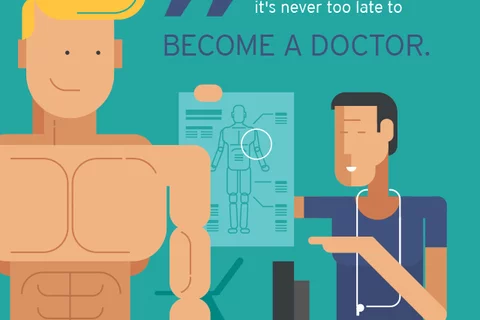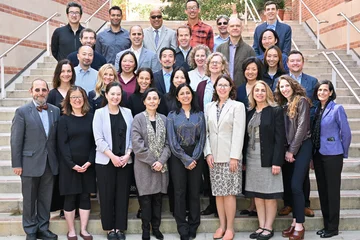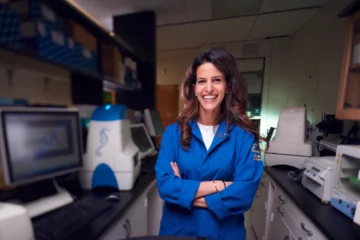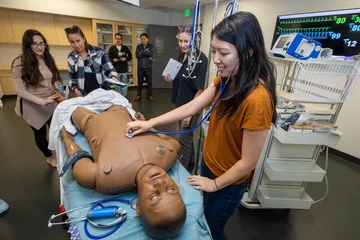There Is More Than One Way to Complete Prerequisites for Medical School
Applying to medical school can be daunting, especially for students who have taken a non-traditional path to becoming a doctor. Whether they decided to pursue medicine after completing a bachelor's degree in another discipline or they decided to make a career change later in life, non-traditional applicants may be intimidated by the medical school prerequisites they need in order to successfully apply. However, there are numerous programs that help students complete the necessary coursework and provide guidance on the medical school application and interview process. For students who are passionate about medicine, it's never too late to become a doctor.
Deciding to Pursue Medicine
John Barber, a third-year student at the David Geffen School of Medicine at UCLA, always wanted to work in healthcare. During his undergraduate years at the University of California, Davis, he majored in biology and took some medical school prerequisites, but felt "uninspired."
Eventually, organic chemistry got the best of him, causing him to reconsider his plans for medical school. "I saw people around me excelling and I felt as though I wasn't like a lot of the people who were doing well in these courses," he says. "I was humbled from the start of undergrad and realized that I needed different study methods than those I used in high school."

No matter what other fields he explored, John always came back to medicine. But he still questioned whether the field was right for him because he had heard how hard medical school could be and was worried he wouldn't be able to find work-life balance in the medical profession. Adding to those fears, he didn't come from a family that could afford the tuition.
Despite these pressures, he applied to work at Clínica Tepati, an undergraduate-run medical clinic at the University of California, Davis, during his junior year. There, he cared for people who didn't have health insurance. "I worked with students who were happy and physicians who were happy," he recalls. "I was inspired by the people I met at the clinic more than I've been anywhere."
Applying to Medical School
That's when John decided it was time to get serious about applying to medical school. He didn't yet have the necessary prerequisites, so he took an extra year of college to complete the coursework. Students who decide to pursue a medical career after graduation and lack the necessary prerequisites can do a post-baccalaureate, pre med program. Medical school prerequisites usually include courses in biology, organic and inorganic chemistry, physics and calculus, among others.
During the extra year of college, John applied to and qualified for the Medical School Preparatory Enhancement Program, a program for disadvantaged students run by the UC Davis School of Medicine. The program paid for his MCAT exam as well as a Kaplan preparation course while providing a stipend for living expenses, allowing him to focus on studying during the summer after graduation.
"Having come from a poor family, I would not have been able to go to medical school without the guidance and financial support that this program provided," he says.
(Related Article: First Gen Medical Students Share Their Experiences)
It takes a year or more to complete the interview and selection process for medical school. During that time, John began working at his brother's gym as a coach. That gave him the chance to provide for people's health through fitness programs. He even considered staying, but he still felt called to be a doctor.
"I loved what I was doing and I still feel that being a fitness coach is the best kind of preventive medicine," he says. "Ultimately, my love of biology and the problem-solving nature of medicine is what steered me away from coaching and, once again, back to medicine."
Working for two years before starting medical school gave John a different perspective on the workload of a student and medical school requirements.
"People talk about how medicine is hard, but opening a gym at 4 am and coaching eight classes a day was also hard," he says. "Doctors have an awesome opportunity to work with people to make them happier."
(Related Article: A Student Athlete’s Inspiring Path to Medical School)




